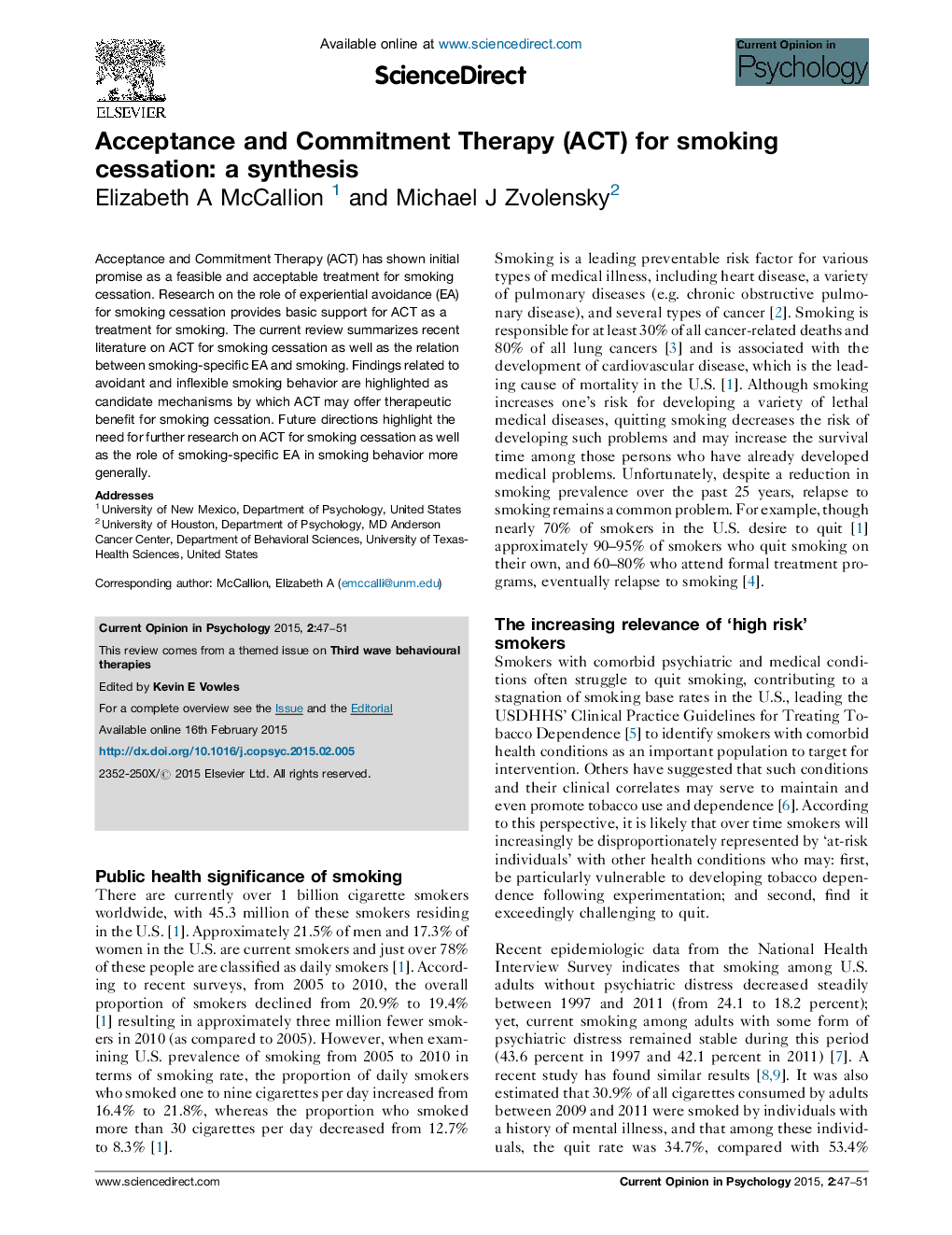| Article ID | Journal | Published Year | Pages | File Type |
|---|---|---|---|---|
| 879520 | Current Opinion in Psychology | 2015 | 5 Pages |
•Interventions should target ‘high risk’ smokers with comorbid health conditions.•Negative affect has been found to be an important factor in smoking relapse.•Smoking-specific experiential avoidance is related to increased negative affect.•ACT decreases avoidance and inflexibility and increases smoking cessation success.•It is unclear if an ACT intervention can outperform other smoking interventions.
Acceptance and Commitment Therapy (ACT) has shown initial promise as a feasible and acceptable treatment for smoking cessation. Research on the role of experiential avoidance (EA) for smoking cessation provides basic support for ACT as a treatment for smoking. The current review summarizes recent literature on ACT for smoking cessation as well as the relation between smoking-specific EA and smoking. Findings related to avoidant and inflexible smoking behavior are highlighted as candidate mechanisms by which ACT may offer therapeutic benefit for smoking cessation. Future directions highlight the need for further research on ACT for smoking cessation as well as the role of smoking-specific EA in smoking behavior more generally.
